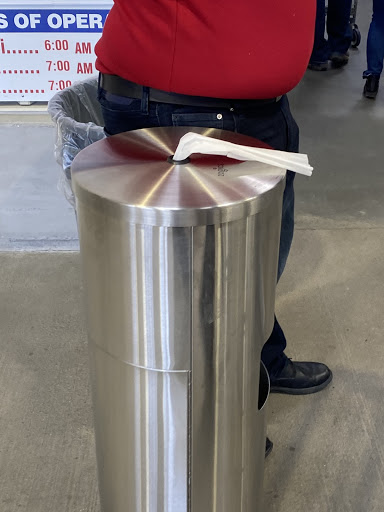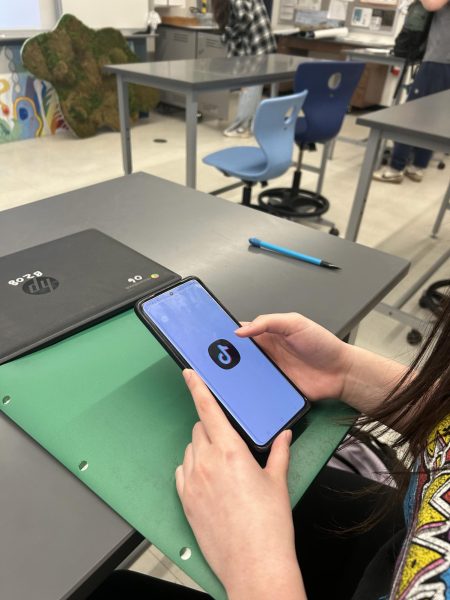Setting the Facts Straight: COVID-19 and What We Need to Do
The coronavirus is one of the most talked-about topics recently, and there is much controversy surrounding the facts and actions that people are taking. In times like this, it becomes even more important to get your facts straight and to be careful of what you say.
According to the CDC, Centers for Disease Control and Prevention, the origin of this particular virus is Wuhan, China. However, “coronavirus” refers to a family of viruses. This virus is named SARS-CoV-2, and the disease caused is called COVID-19.
The origin of corona-type viruses is zoonotic, meaning they come from animals. The virus infects humans from animals and then spreads rapidly among humans. In the case of COVID-19, the origin is from bats. After someone is infected, it takes 2 days to 2 weeks for symptoms to show, making it easy for people to infect many others before being treated.
The World Health Organization stated that as of March 7, 2020, there have been 80,813 confirmed cases in China and 3,073 deaths. Many people in China who are scared, like my grandmother, confine themselves to their homes, even though they are not sick and are not in Wuhan.
The Republic of Korea has the second-most cases of infection, 6,767, but has only 47 deaths. In the third and fourth spots are Iran (5,823 cases, 145 deaths) and Italy (4,636 cases, 197 deaths), respectively.
The United States is eleventh on the list, with 213 confirmed cases and 19 deaths so far. The number of reported cases in the US has been significantly higher in March than in January and February. Two people died in Florida, one in California, and 16 in Washington state; however, there are more deaths to be expected, and they might be scarily close to home.
New York has reported another 21 new cases, bringing the state’s total to 76. Essentially, Connecticut is surrounded by coronavirus cases; in fact, there was a physician who works at Bridgeport Hospital in Connecticut but lives in New York who tested positive. However, Governor Ned Lamont and Renee Coleman-Mitchell, the commissioner of the state Department of Public Health, insist that the case does not officially count as a Connecticut case since the disease was most likely contracted in New York.
The CDC has been working hard on measures to try and reduce the spread of the virus such as giving updates and health advice. Also, many stores such as Costco have started giving disinfectant wipes for carts to prevent the potential spread of germs. Furthermore, Costco has recently announced that it will stop giving samples in stores.
Trader Joe’s has taken similar actions and only gives out samples by request; by not leaving the samples out in open air, they reduce the risk of infecting the food. These are small but useful precautions that can be the tipping point of whether the virus becomes an epidemic here or not.
Furthermore, since so many people are in a panic and are ‘stocking’ up for the epidemic, stores have had to put limits on products such as toilet paper, diapers, and rice.
Many people may be wondering: is there a foreseen end to this virus? The truth is that it is extremely hard to tell. There are a few potential ways for this virus to end: One, enough people may develop immunity from infection or vaccination. Two, the virus may die down by itself when the weather warms up (like the common flu). Three, the virus will continue to circulate and will change and establish itself as a common, weaker respiratory virus. Four, health officials find ways to control the virus through strict public health measures.
Currently, there is no vaccine, and it will take months before it can be developed. As a comparison for the time it might take, the vaccine for the Zika virus in 2015 took 6 months to develop. Since the vaccine also needs to be tested to ensure its safety, it might take in total 1 year.
Overall, the best thing that we can all do right now is to take care of ourselves and pay attention to the news. It is important to know which statements are true and which are myths. If everyone makes an effort, then we can reduce our own stress and the stress of everyone around us and hopefully be able to beat the virus as soon as possible.
Here are some simple steps you can take to stay safe:
- Wash your hands before eating
- Clean your phone – your phone is probably one of the dirtiest things you own since you bring it everywhere with you
- Don’t touch your face (especially your eyes, mouth, and nose)
- Avoid as much physical contact with others as possible (hugging, sharing food and straws, holding hands)
- Eat vitamin C, which helps your immune system. Good sources include citrus fruits, kale, broccoli, and sweet potatoes
- Sleep and exercise well to stay healthy
- Don’t make jokes about the virus and do not be racist- many people have family in China or family already quarantined in Wuhan. And the virus might come from anyone – not just people who are Chinese.






